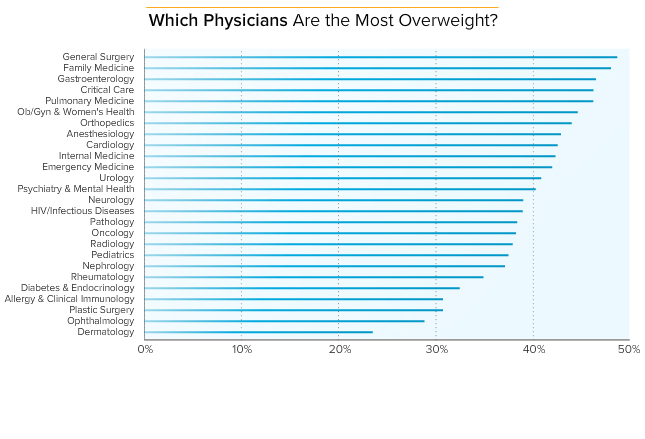 According to the CDC an estimated 97 million adults in the United States are overweight or obese, a condition that substantially raises their risk of hypertension, high cholesterol, diabetes, coronary heart disease, stroke, gallbladder disease, osteoarthritis, sleep apnea and respiratory problems, and cancers of the breast, prostate, and colon. CDC data show that about a third of adults are overweight, an additional 36% are obese, and 6% are classified as extremely obese.
According to the CDC an estimated 97 million adults in the United States are overweight or obese, a condition that substantially raises their risk of hypertension, high cholesterol, diabetes, coronary heart disease, stroke, gallbladder disease, osteoarthritis, sleep apnea and respiratory problems, and cancers of the breast, prostate, and colon. CDC data show that about a third of adults are overweight, an additional 36% are obese, and 6% are classified as extremely obese.
Do physicians practice what they preach when it comes to diet, nutrition, and maintaining a healthy weight? In a recently published study the percentage of physicians who are overweight were compared by specialty. The surgeons topped the scales – is it because they spend a lot of time standing and don’t have time to plan meals? The dermatologists and plastic surgeons were lightweights – maybe they are more self conscious of the image they need to project. And what about those gastroenterologists……
Overweight is defined as a BMI (Body Mass Index) between 25 and 30. Obesity is a BMI of 30 or more, though some think the number should be 27 or 28 as that’s when significant adverse health consequences start to kick in. Curious how you compare? Click here to calculate your BMI
Losing weight and then keeping it off can be difficult. Need help? – We’ve put together our own multidisciplinary program Click Here For Details

